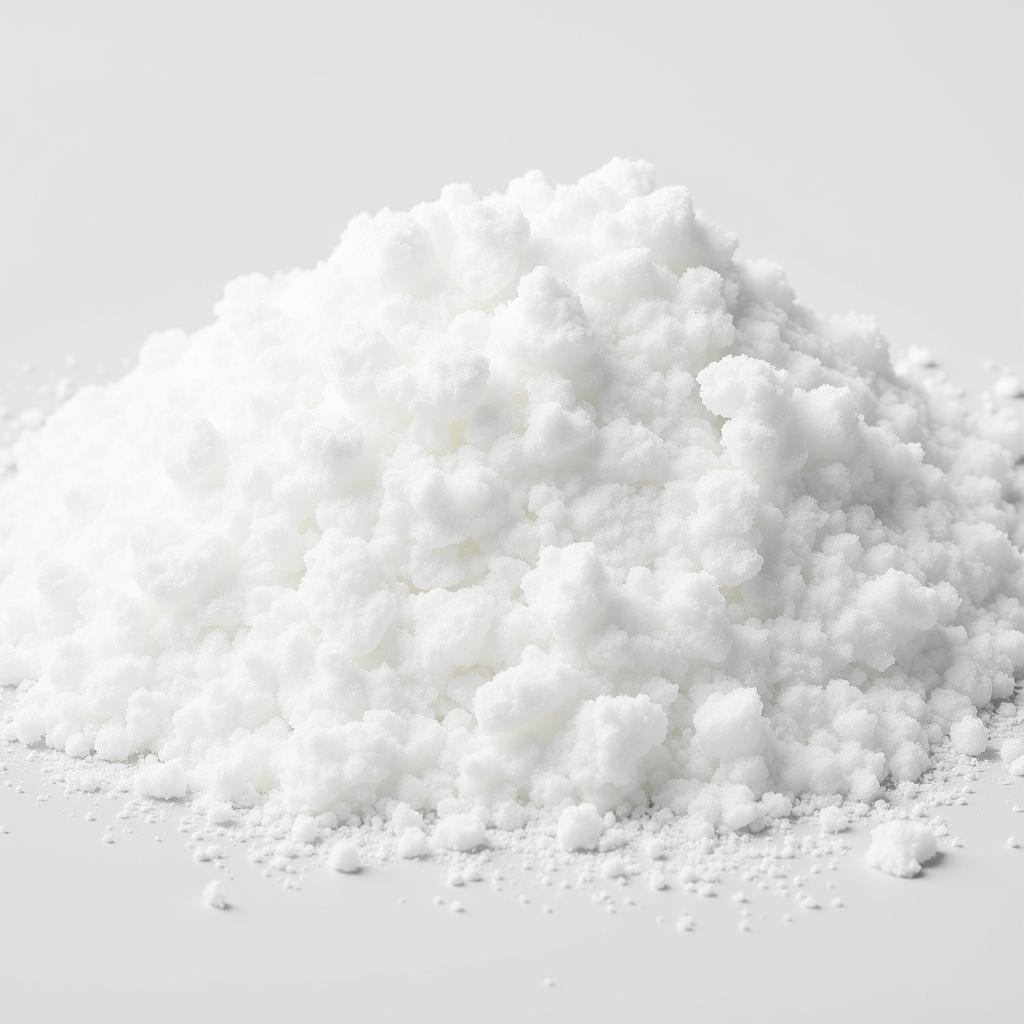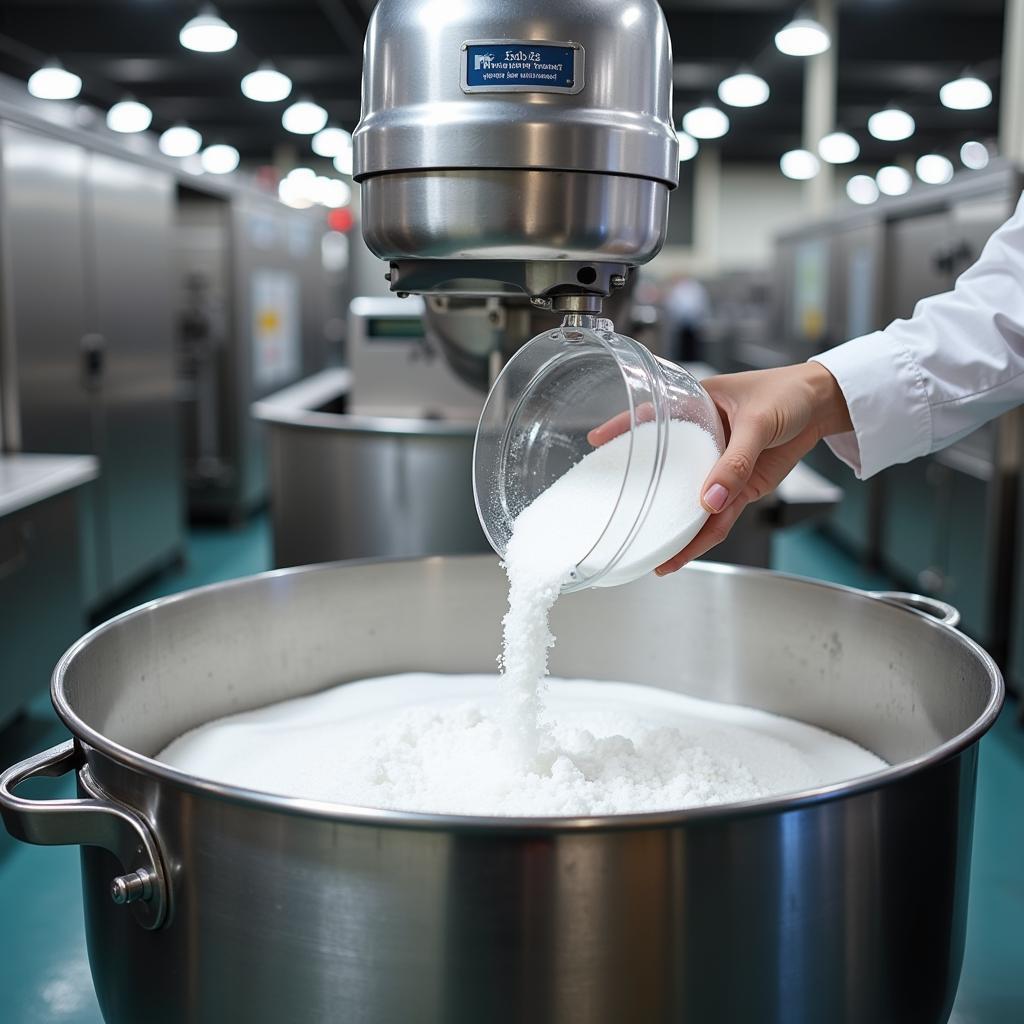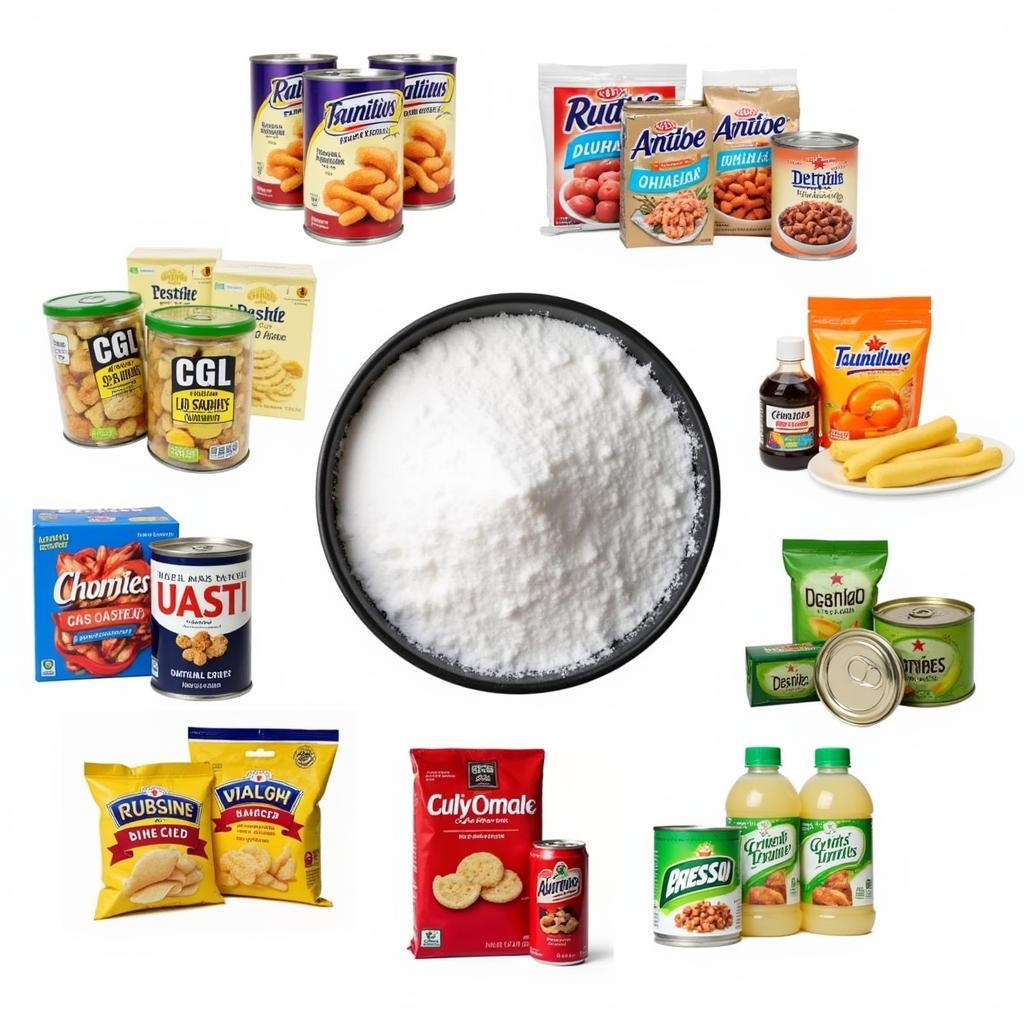Food Grade Potassium Chloride is a common ingredient in various food applications. From enhancing flavors to acting as a nutrient supplement, it plays a crucial role in food processing and preparation. This article explores the properties, uses, and safety of this essential compound.
What is Food Grade Potassium Chloride?
Potassium chloride (KCl) is a metal halide salt composed of potassium and chlorine. In its food-grade form, it’s a white, crystalline powder known for its salty taste and excellent solubility. It’s often used as a substitute for sodium chloride (table salt) in low-sodium diets and various food products. Food grade potassium chloride must meet strict purity standards to ensure it’s safe for consumption. This guarantees it’s free from harmful contaminants and meets specific requirements for particle size and solubility. food grade rock salt is another important ingredient in food processing.
Uses of Food Grade Potassium Chloride
Food grade potassium chloride boasts a wide array of applications within the food industry. One of its primary roles is as a salt substitute, contributing to the flavor profile while reducing sodium content. It’s also a valuable source of potassium, an essential mineral for maintaining fluid balance, nerve function, and muscle contractions. Beyond flavor and nutrition, it acts as a stabilizer and thickener in certain foods.
Enhancing Flavor and Reducing Sodium
In many processed foods, potassium chloride provides a salty taste without the negative health implications associated with high sodium intake. This is particularly important for individuals managing conditions like hypertension. It’s used in everything from canned goods to snacks and even some types of cheese.
Potassium Supplementation
As a rich source of potassium, food grade KCl is added to certain products to boost their nutritional value. This can be particularly beneficial for athletes and individuals with low potassium levels. It helps replenish electrolytes lost through sweating and strenuous activity.
Stabilizing and Thickening
Potassium chloride also acts as a stabilizing agent in some food products, helping to maintain their texture and consistency. For instance, it’s used in certain dairy products and processed meats to enhance their stability.
 Close-up of food grade potassium chloride crystals
Close-up of food grade potassium chloride crystals
Safety and Considerations for Food Grade Potassium Chloride
While generally recognized as safe, consuming excessive amounts of potassium chloride can lead to hyperkalemia, a condition characterized by elevated potassium levels in the blood. This can have serious health implications, particularly for individuals with kidney problems.
Recommended Intake and Potential Side Effects
It’s essential to follow recommended dietary guidelines for potassium intake and consult a healthcare professional before using potassium chloride supplements. Potential side effects of excessive potassium intake include nausea, vomiting, diarrhea, and in severe cases, heart arrhythmias.
Proper Storage and Handling
Food grade potassium chloride should be stored in a cool, dry place away from moisture and direct sunlight. Proper handling procedures should be followed to prevent contamination and ensure its safety for consumption.
Is Food Grade Potassium Chloride the Same as Table Salt?
While both contribute a salty taste, food grade potassium chloride isn’t identical to table salt (sodium chloride). Potassium chloride offers a slightly bitter aftertaste, which some people might find less palatable than regular salt.
Taste Differences and Applications
The subtle bitterness can sometimes necessitate adjustments in recipes when substituting potassium chloride for sodium chloride. Food scientists often blend it with other salts to mitigate this effect and create a more balanced flavor profile.
 Food grade potassium chloride being used in food processing
Food grade potassium chloride being used in food processing
What are the Benefits of Using Food Grade Potassium Chloride?
The primary benefits of using food grade potassium chloride include sodium reduction, potassium supplementation, and improved food stability. It’s a versatile ingredient offering significant advantages for both consumers and food manufacturers.
“Food grade potassium chloride is an invaluable tool for creating healthier, more nutritious food products,” says Dr. Amelia Carter, a leading food scientist. “Its ability to reduce sodium content while providing essential potassium makes it a game-changer for the food industry.”
Health Implications and Dietary Advantages
Reducing sodium intake is crucial for maintaining healthy blood pressure and overall cardiovascular health. Potassium chloride provides a viable alternative to traditional salt, allowing consumers to enjoy flavorful foods without compromising their health.
 Various food products containing potassium chloride
Various food products containing potassium chloride
Conclusion
Food grade potassium chloride is a valuable ingredient in the food industry, offering a range of benefits from sodium reduction to potassium supplementation. While generally safe, it’s important to consume it in moderation and follow recommended dietary guidelines. food grade rock salt can also contribute to sodium reduction in certain food applications. Understanding its properties, uses, and potential side effects allows for informed choices and responsible consumption.
FAQ
- What is the difference between food grade and non-food grade potassium chloride?
- Can I use food grade potassium chloride in all my recipes?
- How much potassium chloride should I consume daily?
- What are the symptoms of hyperkalemia?
- Where can I purchase food grade potassium chloride?
- Is food grade potassium chloride suitable for individuals with kidney disease?
- Are there any interactions between potassium chloride and medications?
For assistance, contact us at Phone Number: 02437655121, Email: [email protected] or visit us at 3PGH+8R9, ĐT70A, thôn Trung, Bắc Từ Liêm, Hà Nội, Việt Nam. We have a 24/7 customer service team.